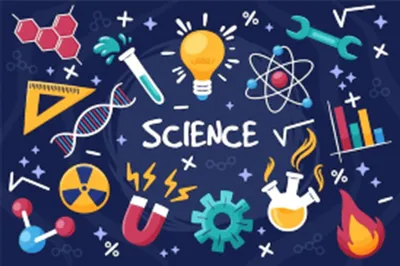Science

Developing Scientists for the Future
School Vision
I alone know the plans I have for you; plans for the future you hope for. Jeremiah 29:11
We seek to transform the lives of our community within a Christian environment, nurturing the wellbeing of all, promoting the highest academic achievement and instilling a lifelong love of learning.
God’s plans for us are limitless. He knows us best and plans for us to reach our unique and individual potential, shaped in the palm of His hand. This potential may reveal itself when we least expect it, just like God’s love being revealed to us. We believe that we are shaping lives, not just in the present, but also for the future – enabling them to be global citizens in God’s rapidly changing world; celebrating life in all its fullness.
Intent
In conjunction with the aims of the National Curriculum, our Science teaching offers opportunities for children to:
- develop scientific knowledge and conceptual understanding through the specific disciplines of Biology, Chemistry and Physics.
- develop understanding of the nature, processes and methods of Science through different types of science enquiries that help them to answer scientific questions about the world around them.
- be equipped with the scientific knowledge required to understand the uses and implications of Science, today and for the future.
- develop the essential scientific enquiry skills to deepen their scientific knowledge.
- Use a range of methods to communicate their scientific information and present it in a systematic, scientific manner, including I.C.T., diagrams, graphs and charts.
- Develop a respect for the materials and equipment they handle with regard to their own, and other children’s safety.
- Develop an enthusiasm and enjoyment of scientific learning and discovery.
Science in our school is about developing children’s ideas and ways of working that enable them to make sense of the world in which they live through investigation, as well as using and applying process skills. Children are exposed to high quality teaching and learning experiences, thus developing their scientific enquiry and investigative skills. They are immersed in scientific vocabulary, which aids knowledge and understanding not only of the topic they are studying, but of the world around them. The curriculum is designed to ensure that children are able to acquire key scientific knowledge through practical experiences, using equipment, conducting experiments and investigations, building arguments and explaining concepts confidently.
We intend to provide all children regardless of ethnic origin, gender, class, aptitude or disability, with a broad and balanced science curriculum. Children have weekly lessons in Science, using various programmes of study and resources.
Implementation
Teachers create a positive attitude to science learning within their classrooms and reinforce an expectation that all children are capable of achieving high standards in science. Our whole school approach to the teaching and learning of science involves the following:
- Science will be taught consistently once a week, for up to two hours. It will be taught in planned and arranged topic blocks by the class teacher. This is a strategy to enable the achievement of a greater depth of knowledge.
- We build upon the learning and skill development of the previous years. As the children’s knowledge and understanding increases, and they become more proficient in selecting, using scientific equipment, collating and interpreting results, they become increasingly confident in their growing ability to come to conclusions based on real evidence.
- Working Scientifically skills are embedded into lessons to ensure these skills are being developed throughout the children’s school career and new vocabulary and challenging concepts are introduced through direct teaching. This is developed through the years, in-keeping with the topics.
- Teachers demonstrate how to use scientific equipment, and the various Working Scientifically skills in order to embed scientific understanding.
- At the end of each topic, key knowledge is reviewed by the children and rigorously checked by the teacher and consolidated as necessary.
We ensure that all children are provided with rich learning experiences that aim to:
- Prepare our children for life in an increasingly scientific and technological world today and in the future.
- Help our children acquire a growing understanding of the nature, processes and methods of scientific ideas.
- Help develop and extend our children’s scientific concept of their world.
- Build on our children’s natural curiosity and developing a scientific approach to problems.
- Encouraging open-mindedness, self-assessment, perseverance and developing the skills of 3 investigation – including: observing, measuring, predicting, hypothesising, experimenting, communicating, interpreting, explaining and evaluating.
- Develop the use of scientific language, recording and techniques.
- Develop the use of computing in investigating and recording.
Make links between science and other subjects.
Impact
The impact and measure of this is to ensure children not only acquire the appropriate age related knowledge linked to the science curriculum, but also skills which equip them to progress from their starting points, and within their everyday lives.
All children will have:
- A wider variety of skills linked to both scientific knowledge and understanding, and scientific enquiry/investigative skills.
- A richer vocabulary which will enable to articulate their understanding of taught concepts.
- High aspirations, which will see them through to further study, work and a successful adult life.
